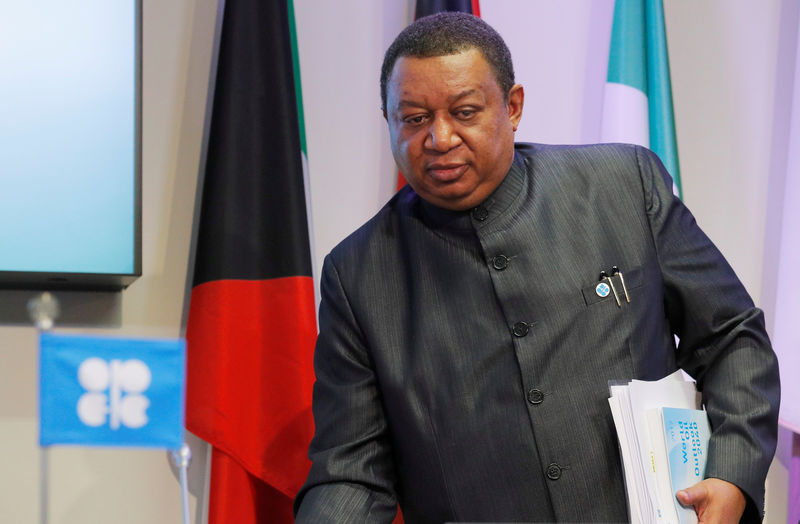By Alex Lawler and Shadia Nasralla
VIENNA (Reuters) - OPEC is seeking to achieve consensus agreement before a meeting on Nov. 30 on how long to extend a global pact to curb oil production, OPEC's secretary general said on Tuesday, with no country unwilling to prolong the accord.
The Organization of the Petroleum Exporting Countries, plus Russia and nine other producers, are cutting oil output by about 1.8 million barrels per day (bpd) until March 2018 in an effort to eradicate a supply glut that has weighed on prices.
The comments indicate an increasing chance that the deal will be extended further into next year at the Nov. 30 meeting. Oil prices are trading at a more than two-year high, but an overhang of stored oil has yet to be fully eradicated.
"Extensive consultations are currently ongoing to reach some consensus before Nov. 30 on the duration beyond the March 2018 deadline," OPEC's Mohammad Barkindo told reporters.
"I have not heard so far any participating country that is violently objecting to extending the decision."
The producers are in the process of inviting other countries to the Nov. 30 meeting, Barkindo said, with a view to joining the deal. He declined to name the countries concerned.
Reuters reported last month, citing OPEC sources, that producers are leaning towards extending the deal for a further nine months, though the decision could be postponed until early next year depending on the market.
Barkindo, who was speaking at a press conference for OPEC's latest World Oil Outlook, said the recent rise in prices reflected improved market fundamentals and producers' high adherence to the supply pact.
"As a result of the high level of conformity of the 24 participating countries in the declaration of cooperation, the market has also responded very positively," he said.
"I am not hearing any diverging view that this market that has been out of balance since the fall of 2014 is finally coming back to a rebalanced market driven largely by fundamentals, assisted by the efforts of OPEC and non-OPEC (members)."

The supply pact is aimed at reducing oil stocks in OECD industrialised countries to their five-year average and the latest figures suggest OPEC is more than halfway there.